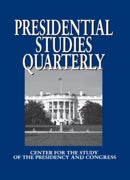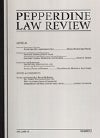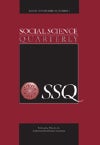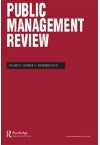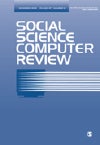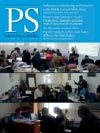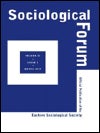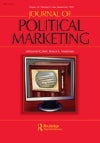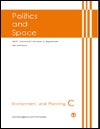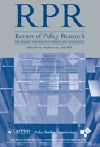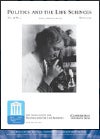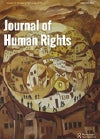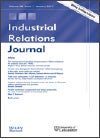Research
Since 1989, the ECU Center for Survey Research (CSR) has delivered data-based research expertise to various agencies, organizations and interest groups across eastern North Carolina. Our methods of professional public opinion assessment and organizational evaluation have earned CSR the reputation as the premier provider of quality consulting services in our region.
Recent Books Authored or Edited by Political Science Faculty Members
2016-2019

Historically, there has been a tendency to regard political satire and humor as a sideshow to the wider world of American politics―entertaining and sometimes insightful, but ultimately only of modest interest to students and others surveying the trajectory of American politics and culture.
Jody Baumgartner
ABC-CLIO, October 2019
ISBN-13: 978-1440854859

Political Humor in a Changing Media Landscape: A New Generation of Research
In the past decade various studies have examined how political humor may influence various political attitudes and voting behavior; whether it affects learning, cognition and media literacy, how it might shape political participation; how people process different forms of political humor; and more.
Jody Baumgartner and Amy Becker, eds.
Lexington Studies in Political Communication, September 2019
ISBN-13: 978-1498565080
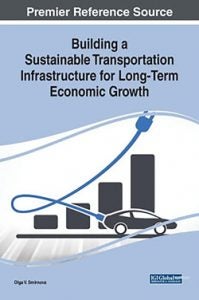
Building a Sustainable Transportation Infrastructure for Long-Term Economic Growth
Long-term economic growth and increasing vehicle congestion is creating a greater demand for efficient and safe transportation. The high cost of maintaining and fixing pre-existing infrastructure is leading the industry to realize that sustainable long-term transportation planning is needed to keep pace with the growing economy.
Olga Smirnova, ed.
IGI Global, February 2019
ISBN-13: 978-1522573968
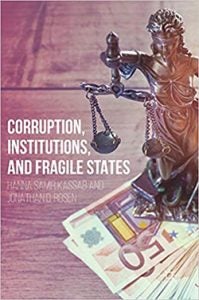
Corruption, Institutions, and Fragile States
This book examines the relationship between state fragility and corruption. It analyzes a variety of regions throughout the world, including Latin America, Central Asia and the Middle East, Africa, Central America and Mexico, South America, and Russia. States that are plagued by high levels of state fragility and corruption facilitate illicit activities and other criminal enterprises.
Hanna Samir Kassab and Jonathan Rose
Palgrave Macmillan, December 2018
ISBN-13: 978-3030043117

The Internet and the 2016 Presidential Campaign
Although many developments surrounding the Internet campaign are now considered to be standard fare, there were a number of new developments in 2016. Drawing on original research conducted by leading experts, The Internet and the 2016 Presidential Campaign attempts to cover these developments in a comprehensive fashion.
Jody Baumgartner and Terri Towner, eds.
Lexington Books, August 2018
ISBN-13: 978-1498542982

Military Neuroscience and the Coming Age of Neurowarfare
Krishnan describes military applications of neuroscience research and emerging neurotechnology with relevance to the conduct of armed conflict and law enforcement. This work builds upon literature by scholars such as Moreno and Giordano and fills an existing gap, not only in terms of reviewing available and future neurotechnologies and relevant applications, but by discussing how the military pursuit of these technologies fits into the overall strategic context.
Armin Krishnan
Routledge, August 2018
ISBN-13: 978-1138361447

Drugs, Gangs, and Violence
This book examines the nature of transnational organized crime and gangs, and how these diverse organizations contribute to violence, especially in so-called fragile states across Central and Latin America. While the nature of organized crime and violence differs depending on the context, the authors explain how and why states plagued by weak institutions tend to foster criminal organizations and violence, and why counter-crime initiatives often result in higher levels of violence.
Jonathan Rosen and Hanna Samir Kassab
Palgrave Macmillan, August 2018
ISBN-13: 978-3319944500

Illicit Markets, Organized Crime, and Global Security
This book explains the existence of illicit markets throughout human history and provides recommendations to governments. Organized criminal networks increased in strength after the enforcement of prohibition, eventually challenging the authority of the state and its institutions through corruption and violence. Criminal networks now organize under cyber-infrastructure, what we call the Deep or Dark Web.
Hanna Samir Kassab and Jonathan Rosen
Palgrave Macmillan, June 2018
ISBN-13: 978-3319906348

Why Paramilitary Operations Fail
This book analyzes U.S. pro-insurgency paramilitary operations (PMOs) or U.S. proxy warfare from the beginning of the Cold War to the present and explains why many of these operations either failed entirely to achieve their objective, or why they produced negative consequences that greatly diminished their benefits.
Armin Krishnan
Palgrave Macmillan, April 2018
ISBN-13: 978-3319716305
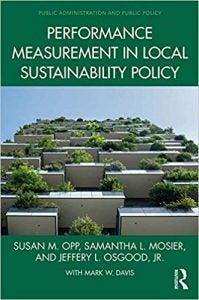
Performance Measurement in Local Sustainability Policy
Local officials are responsible for a number of important tasks that have a significant impact on the quality of life of most Americans. Arguably, the policy choices made by local governments in the United States more directly impact individual well-being than do the choices made at any other level of government. From zoning decisions to the creation of parks and the maintenance of sidewalks and trails, local governments are largely responsible for direct services to the public and can provide the necessary tools and skills to create an attractive and vibrant community.
Susan Opp, Samantha Mosier, and Jeffrey Osgood, Jr.
Routledge, February 2018
ISBN-13: 978-0815373056

Terrorist Organizations and Weapons of Mass Destruction: U.S. Threats, Responses, and Policies
Weapons of Mass Destruction are diverse and pose unique challenges to governments attempting to keep them out of the wrong hands and preparing to respond to an attack. This text analyzes Chemical, Biological, Radiological, and Nuclear (CBRN) weapons and terrorist groups with a known interest in them. It presents accessible information about the technical challenges posed by each type of weapon, assesses the threats, and reviews the US governmental responses.
Alethia Cook
Roman and Littlefield Publishers, September 2017
ISBN-13: 978-1442276628
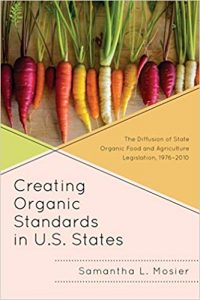
Creating Organic Standards in U.S. States: The Diffusion of State Organic Food and Agriculture Legislation, 1976-2010
The organic food and agriculture market has greatly expanded over the course of the past forty years. Once considered a fringe practice and market, organic food and agriculture now receives mainstream acceptance and political support in the United States. The USDA’s National Organic Program regulates the current U.S. market, but organic regulations were originally developed in the states starting in the 1970s.
Samantha Mosier
Lexington Books, June 2017
ISBN-13: 978-1498554404

Conflict Dynamics: Civil Wars, Armed Actors, and Their Tactics
Conflict Dynamics presents case studies of six nation-states: Sierra Leone, the Republic of Congo, Sri Lanka, Myanmar, Indonesia, and Peru. In the book, Alethia H. Cook and Marie Olson Lounsbery examine the evolving nature of violence in intrastate conflicts, as well as the governments and groups involved, by focusing on the context of the relationships involved, the capacities of the conflict’s participants, and the actors’ goals.
Alethia Cook and Marie Olson Lounsbery
University of Georgia Press, May 2017
ISBN-13: 978-0820338330
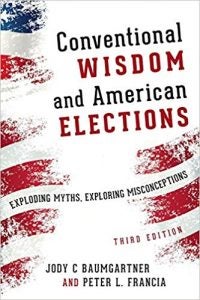
Conventional Wisdom and American Elections: Exploding Myths, Exploring Misconceptions
Many students develop misinformed opinions about the American electoral process. Conventional Wisdom and American Elections: Exploding Myths and Misconceptions debunks some of the more common misunderstandings that have arisen about the electoral process in the past few decades. This book engages students in elections and politics and teaches them to evaluate information like a political scientist.
Jody Baumgartner and Peter Francia
Roman & Littlefield, Fall 2016
ISBN-13: 978-1442254893
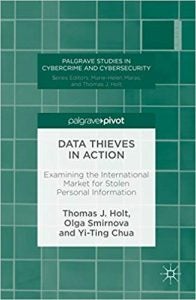
Data Thieves in Action: Examining the International Market for Stolen Personal Information
This book examines the practices of cybercriminals who steal and sell personal information acquired through various means, including mass data breaches, to engage in cybercrime and fraud. Using data from multiple English and Russian language web forums, the authors identify the range of products sold in these active on-line marketplaces and the prospective profits earned by these actors.
Thomas Holt, Olga Smirnova, and Yi-Ting Chua
Palgrave, September 2016
ISBN-13: 978-1137589033
Recent Articles Authored or Edited by Political Science Faculty Members
2017-2019
“Polls and Elections: Under the Radar: Public Support for Vice Presidents” – Baumgartner, J. C. (2017)
Analysis of vice-presidential favorability and job approval polling data for the past four vice presidents suggests that there is a mismatch between how scholars and the public perceive the vice presidency.
Presidential Studies Quarterly, 47(4), 777-788
“The Vice Presidency in the Twenty-First Century” – Baumgartner, J. C. (2016)
The vice presidency has undergone almost revolutionary change sinceits inception 227 years ago. Conceived as a convenient solution to a problem created by the Electoral College, the Vice President has only two constitutional functions—to serve as a successor to the President and as the President of the Senate.
Pepp. L. Rev., 44, 561
“Maybe it is more than a joke: Satire, mobilization, and political participation”– Baumgartner, J. C., & Lockerbie, B. (2018)
The objective of this study was to examine the relationship between viewing late night political humor and political participation.
Social Science Quarterly, 99(3), 1060-1074
“Prosocial rule breaking at the street level: the roles of leaders, peers, and bureaucracy” – Fleming, C. J. (2019)
Rules and rule behavior are keys to understanding modern organizations. This study examines prosocial rule breaking (PSRB), a view of workplace rule violations that eschews assumptions of invariably self-interested, utility-maximizing workers. Using survey data of child welfare social workers, the study tests the influences of leaders, peers, and bureaucratic attributes on PSRB-related attitudes and behavior.
Public Management Review, 1-26.
“Free media and Twitter in the 2016 presidential election: The unconventional campaign of Donald Trump” – Francia, P. L. (2018)
This article examines the surprising outcome of the 2016 presidential election, which saw Donald Trump defy nearly all of the conventional wisdom to become the 45th president of the United States. Political commentators and experts offered several immediate postelection explanations for Trump’s victory, one of which focused on how Trump was able to generate considerable unpaid or free media for himself, often directly through Twitter.
Social Science Computer Review, 36(4), 440-455
“Economic pessimism and political punishment” – Lockerbie, B. (2016)
Forecasting elections is an enterprise that intrigues and amuses political scientists, politicians, and the general public. We have seen office betting pools around political science departments. Politicians and the talking heads will have bets concerning their forecasts and predictions of the upcoming election.
PS: Political Science & Politics, 49(4), 673-676
“Evolving learning: The changing effect of Internet access on political knowledge and engagement (1998–2012)” – Morris, D. S., & Morris, J. S. (2017, June)
This study addresses the changing role of Internet usage on the political knowledge and participation gap between individuals of low and high socioeconomic status (SES). Analysis of data collected by the Pew Research Center’s Biennial Media Consumption Studies (1998–2012) shows that the percentage of the population that accidentally encounters political information online has risen dramatically.
Sociological Forum (Vol. 32, No. 2, pp. 339-358)
“Did the ‘Road to the White House Run Through’ Letterman? Chris Christie, Letterman, and Other-Disparaging Versus Self-Deprecating Humor” – Baumgartner, J. C., Morris, J. S., & Coleman, J. M. (2018)
In this article we present the results of an experiment designed to disentangle the effects late-night talk show viewership have on presidential candidate evaluations. Respondents in one condition viewed a short video clip of David Letterman humorously disparaging New Jersey Governor Chris Christie, thought by many at the time to be considering a run for the presidency in 2016.
Journal of Political Marketing, 17(3), 282-300
“Research note: negative news and late-night comedy about presidential candidates” – R Baumgartner, J. C., Lichter, S. R., & Morris, J. S. (2019)
In this paper we explore the creation of jokes told on late night talk shows targeted at major party nominees for president from 1992–2008.
Humor, 32(4), 605-617
“Sustainability university–community partnerships: Lessons for practitioners and scholars from highly sustainable communities” – Mosier, S., & Ruxton, M. (2018)
As local communities face increasing pressure to address environmental concerns, town–gown partnerships are one avenue for improving environmental conditions and sustainability planning for the future. Partnerships between community leaders and university students, faculty, and staff can provide an avenue for exchanging knowledge, expertise, and resources that may benefit both parties.
Environment and Planning C: Politics and Space, 36(3), 479-495
“How Values Shape Program Perceptions: The ‘Organic Ethos’ and Producers’ Assessments of US Organic Policy Impacts” – Carter, D. P., Mosier, S. L., & Adams, I. T. (2019)
Among the more recognizable programs related to natural and sustainable food is the United States Department of Agriculture’s National Organic Program. Although the robustness of the organic food market is difficult to contest, many debate the extent to which U.S. organic policy outcomes adequately serve consumers and the organic agriculture producers they rely on. This paper engages the debate from the perspective of certified organic producers.
Review of Policy Research, 36(3), 296-317
“Policies as species: Viewing and classifying policy from an evolutionary biology perspective” – Mosier, S. L.
This article proposes equating policies as species to develop a better understanding of how policies emerge, change, and diffuse across policymaking environments. Scholars have long shown an interest in understanding policy change and reinvention, whether incremental or nonincremental. The two subfields of public policy that can answer how and why policies change are not unified, leading to difficulty in comprehensively assessing policy emergence and change.
Politics and the Life Sciences, 1-15
“The Roles of Design and Third Parties on Civil War Peace Agreement Outcomes” –
Lounsbery, M. O., & DeRouen Jr, K. (2018)
This article traces the contours of emerging social science research on the resolution of civil conflict, which has been one of the more prevalent threats to sustainable peace since the Cold War. We present findings from our own research on the design of peace agreements and civil conflict, by first examining whether more elaborate and comprehensive agreements are also more effective, then by looking at the effect of intervention on civil war peace agreement design over the years 1975 to 2011.
Peace & Change, 43(2), 139-177
“Civil War Conflict Resolution from the Perspectives of the Practitioner and the Academic” – Nathan, L., DeRouen Jr, K., & Lounsbery, M. O. (2018)
Civil wars are particularly challenging to resolve via mediated negotiations. Practitioners and policy makers employ a variety of approaches to help move warring actors from war to peace. To assist in this process, peace researchers have examined civil war peace processes from a variety of perspectives.
Peace & Change, 43(3), 344-370
“Civilian victimization and international military intervention in civil wars” –
Olson Lounsbery, M., & Pearson, F. S. (2019)
Civil wars are particularly destructive and asymmetric in nature. As a result, humanitarian crises and episodes of one-sided violence against civilians are likely to emerge. In the post-Cold War era, human rights norms have been strengthened by a global commitment stating that nations have a responsibility to protect people against war crimes.
Journal of Human Rights, 18(2), 201-214
“Flexible institutional arrangements and labour productivity: the case of transit industry in the United States” – Smirnova, O. V. (2017)
Using the US National Transit Database 1994–2006, the manuscript empirically tests the influence of several institutional arrangements on labour productivity. The main finding of the paper is that not all flexible institutional arrangements may translate into labour productivity gains in the mass transit.
Industrial Relations Journal, 48(1), 72-93
“Using an Engaged Scholarship Symposium to Change Perceptions: Evaluation Results” – Varkey, S., Smirnova, O., & Gallien, T. L. (2018)
Engaged scholarship (ES) entails a symbiotic relationship between the community and the university. This article
reports results from an evaluation of an ES symposium Eastern Carolina University held to increase awareness of ES as a means for integrating research, teaching, and service and to potentially change unfavorable perceptions about
ES through education and testimonials.
Journal of Extension, 56(1), n1

